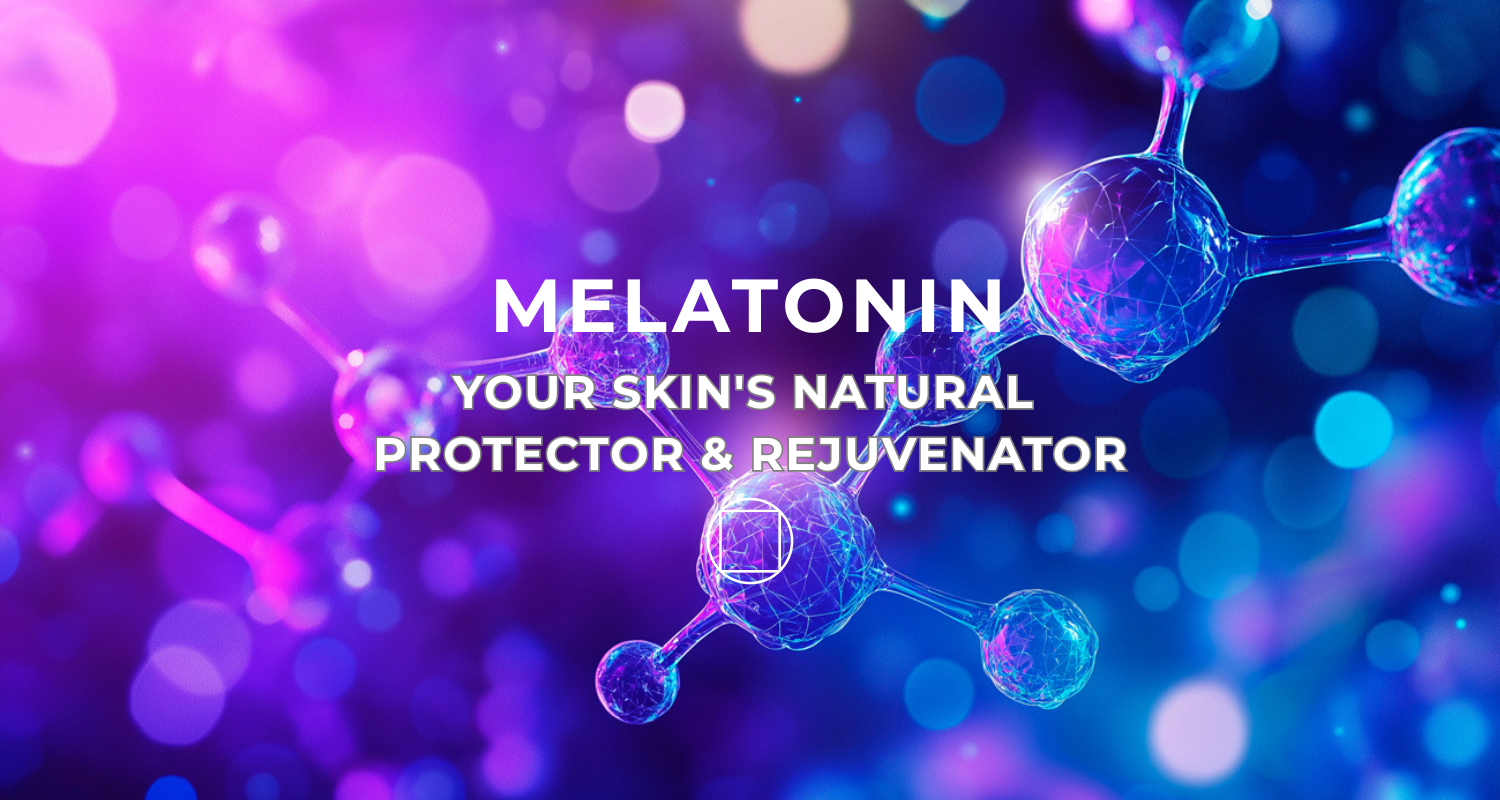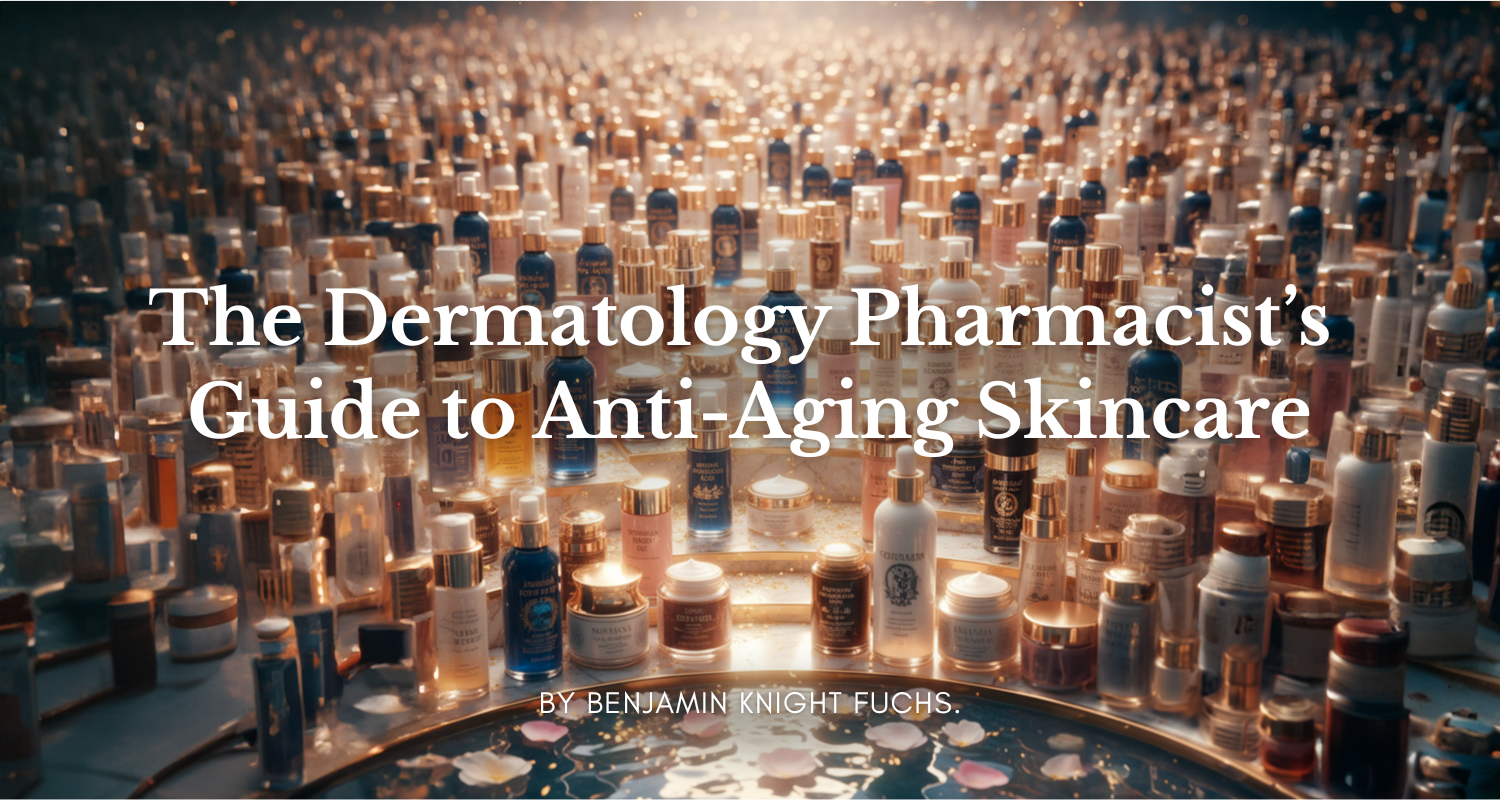
Melatonin: Your Skin's Natural Protector and Rejuvenator.
By Benjamin Knight Fuchs, R.Ph.
Why Melatonin Matters in Skincare
As skin care professionals, we're dedicated to helping our clients achieve healthy, radiant, youthful skin. While you’re probably familiar with vitamin C, retinol, and hydroxy acids, there’s another natural compound worth adding to your radar: melatonin.
Most people know melatonin as the sleep hormone that regulates the body’s internal clock. But this fascinating molecule offers surprising skin health benefits — and understanding them can help you elevate your practice.
What is Melatonin?
-
Produced in the brain by the pineal gland, but also synthesized in the skin itself.
-
Derived from serotonin, the neurotransmitter associated with mood regulation.
-
Regulates circadian rhythm, influencing the sleep–wake cycle.
-
Possesses antioxidant, anti-inflammatory, and anti-aging properties.
Research shows that keratinocytes, melanocytes, melanoma cells, and even hair follicles can synthesize melatonin.
Factors Influencing Skin Melatonin Production
-
UV exposure
-
Skin conditions
-
Age (decline with aging)
-
Race (higher levels observed in people of African descent)
-
Genetics
Key Skin Benefits of Melatonin
1. Powerful Antioxidant Protection
Neutralizes free radicals, prevents oxidative stress, and boosts the skin’s natural antioxidant defense.
2. Anti-Inflammatory Properties
Helps calm conditions like acne, rosacea, and eczema.
3. Sun Damage Defense
Not a sunscreen replacement — but enhances DNA repair and helps prevent UV-related damage.
4. Anti-Aging Effects
Improves firmness, reduces wrinkles, and supports skin radiance.
5. Pigmentation Regulation
Helps address melasma, vitiligo, and hyperpigmentation.
6. Wound Healing Support
Promotes regeneration, regulates skin cell density, and aids recovery.
7. Hair Growth Enhancing Properties
Protects against oxidative damage and may help with androgenetic alopecia.
8. Thermoregulation
Assists in regulating skin temperature, beneficial in conditions like Raynaud’s Syndrome and menopause-related vasomotor changes.
Topical Melatonin: Direct Benefits
-
Direct Antioxidant Delivery: Protects against UV, pollution, and blue light.
-
Enhanced Barrier Function: Strengthens skin’s first line of defense and improves hydration.
-
Localized Anti-Inflammatory Action: Soothes sensitive, irritated, or inflamed skin.
-
Photoprotection Amplified: Works synergistically with sunscreen for added defense.
-
Targeted Pigmentation Regulation: Addresses melasma and post-inflammatory hyperpigmentation.
-
Improved Product Penetration: Enhances effectiveness of other actives (like vitamin C or hyaluronic acid).
The Takeaway: A Promising Future for Melatonin in Skincare
We’re only beginning to uncover melatonin’s role in skin health. Beyond helping regulate sleep, it also acts as a natural protector and rejuvenator for your skin.
As science continues to reveal more, one thing is already clear: melatonin can be a powerful ally in your daily routine — helping your skin look radiant, youthful, and truly healthy.
Learn more in our resource: Seven Evidence-Based Reasons Why Topical Melatonin Improves Skin Health.


